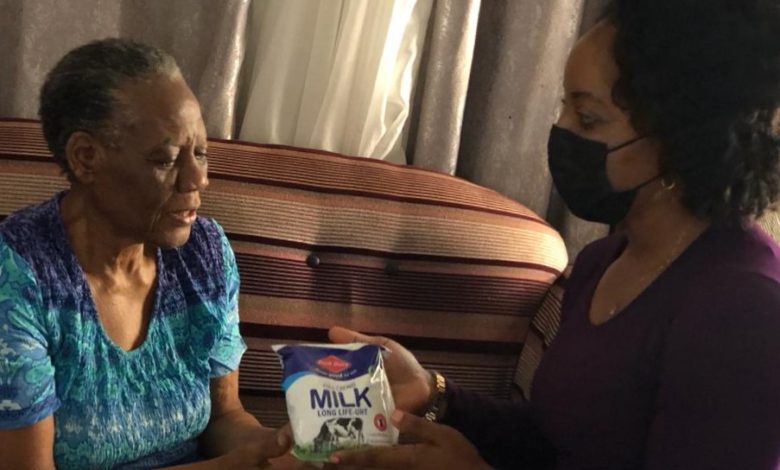Dr Sabrina Kitaka On Why The Elderly To Drink Milk Too
In Uganda, the current population of older persons is estimated at 1.6 million (5% of the population) and it is expected to increase to 5.5 million in 2050.

Many times, we hear about the importance of drinking milk during childhood and adolescence, and during pregnancy but milk also offers many benefits to people in their 60’s and beyond.
These individuals are called elderly or seniors and they are the grand parents or great grandparents. Worldwide, the proportion of older persons (aged 60 years and above) stands at 11% and it’s anticipated to double by 2050 (UNDESA 2013).
In sub-Saharan Africa, older persons comprise 5% of the population (UNFPA 2012).
In Uganda, the current population of older persons is estimated at 1.6 million (5% of the population) and it is expected to increase to 5.5 million in 2050 (UBOS and ICF International 2012).
Dr Sabrina Kitaka, a senior pediatrician says that many people who take care of their elderly parents will understand very well how much importance they attach to their memories of good feeding and how they desire to re-live their youthful memories of dancing and running around in the sun.
“As people age, their nutrition is so important because it contributes heavily to their well-being and reduces their visits to the hospital. One important food which the elderly should not miss in their diet is milk, especially if they have not developed lactose intolerance.”
Dr Sabrina highlights four important reasons for older adults to get more milk in their diet:
- Milk provides Potassium
Potassium is a nutrient many seniors who skip dairy products lack in sufficient quantity. Too little potassium and too much sodium in the blood are risk factors for high blood pressure, also known as the “silent killer,” which is common among older adults.
High blood pressure in seniors increases the risk of chronic kidney disease, heart attack, and stroke. Most seniors already consume too much salt in their diets, but boosting potassium intake can help reduce this risk.
- Milk provides Glutathione
A recent study published in the American Journal of Clinical Nutrition found a correlation between milk intake and levels of an antioxidant called glutathione in the brain in older adults.
Study participants who drank milk a short while before being tested had higher levels of glutathione, which is believed to reduce oxidative stress associated with Alzheimer’s disease and other conditions.
- Milk provides Calcium
One of the primary benefits of milk is the high level of calcium, an essential nutrient for building and maintaining bone strength in seniors. Calcium is extremely important for preventing osteoporosis, especially for senior women. A single cup of nonfat milk has almost 300 mg of calcium, which is almost half the recommended daily intake for seniors.
- Provides Vitamin D
Humans produce vitamin D in the skin through exposure to sunlight. While the sun is the source of most of the vitamin D in the body, the skin becomes less effective at producing this essential vitamin with age.
Vitamin D is important for healthy bones because it helps the body absorb calcium. Milk is a good source of vitamin D for boosting calcium intake and reducing your loved one’s risk of osteoporosis and fractures. A serving of reduced-fat milk contains 2 IUs of vitamin D, one-fifth of the recommended daily intake.
I therefore encourage our loved ones to consume milk regularly and reap these health benefits. “My own mother who is a retired nurse recently celebrated her 82nd birthday, and one of the gifts we took for her was a carton of Fresh Dairy Longlife UHT milk with an extended shelf-life of 90-days with or without refrigeration.
She likes to drink a glass of milk with her breakfast. I am happy to note that some of the elderly members of my community church have now reverted to taking their milk and have given testimonies of how much their health has improved over the last few weeks. #DrinkMilk4GoodHealth.”







